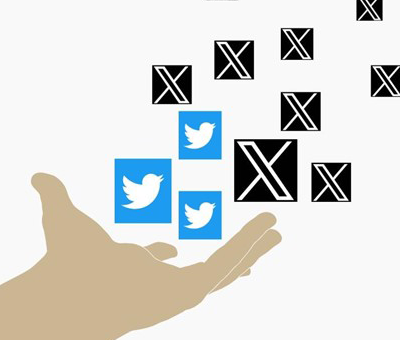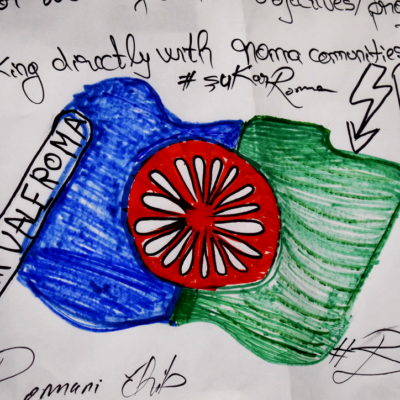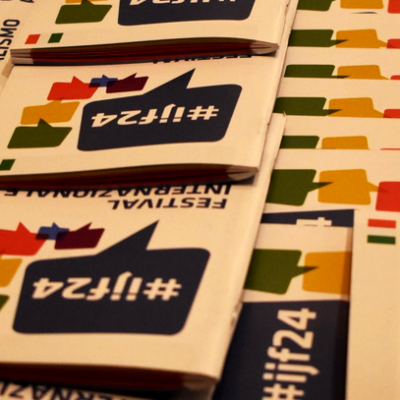Markus Salcher, who is from Carinthia, Austria, has achieved what many alpine skiers dream of: he has already won seven Paralympic and 13 World Para Alpine Skiing Championship medals and has been voted Austria’s Para-Athlete of the Year three times. In this interview, he talks about his career as a para-athlete, the difference between integration and inclusion and the 2026 Paralympic Games in Italy.
Markus, how did your hemiplegia come about?
I’ve had my disability since I was born. I had the umbilical cord around my neck and suffered a lack of oxygen as a result. That’s why a part of my brain in the size of a walnut died. The good thing about something like this happening at such an early stage of development is that the young brain learns to deal with it more easily than, for example, a stroke patient at 60. Other areas of the brain were able to take over the tasks of the part that died. However, the paralysis still remains.
And how did you get into skiing?
We are a very ski-savvy family: my dad completed his trainer training in 1995 and was a trainer at SV Tröpolach in Carinthia. I also have two brothers, one older and one younger, and the question was never whether I would ski, but how I would ski. And now I just do it with one ski pole.
Did you then participate in the – I’ll put that in quotation marks – “normal” races for children and young people?
You don’t have to put that in quotation marks that’s the way it is. So yes, I competed with non-disabled people in the Gailtal Cup, but of course I never made it onto the podium because of my physical impairment. I was always in the midfield, sometimes better, sometimes worse. But my parents taught me to judge things well and not to get discouraged, as they explained to me early on why this was the case. In 2004, I got in contact with para-sport and since then I’ve only competed with the para-athletes.
How long did it take you to become a professional athlete?
I graduated in 2011 as the first para-athlete at the upper secondary school for competitive sports in Klagenfurt, where the sixth form lasts five years. Training is integrated into the lessons there. That paved the way for me to become a professional athlete because I got the athletic and academic training there. It’s particularly important as a para-athlete to get a school-leaving qualification because you can’t make a living from sport alone and need to secure oneself for the future. After school, I started studying and started working as a customs officer for the Austrian customs in their programme for professional athletes in 2014. I have a total of nine months off for sport and training, and I work for three months. That works quite well. If I had an injury or ended my career, I could start working there more or less straight away.
Could you imagine continuing to work as a customs officer after your career?
As soon as I stop, I would definitely pursue further training at the Austrian customs so that I could qualify for a job suited for A-level graduates or even an academic position, instead of the apprentice position I have now. But I think it would make sense for me to spread the Paralympic idea around the country in order to attract more young talent. Maybe I could also get involved with the ÖPC [editor’s note: Austrian Paralympic Committee] a bit.
So, you could imagine a future as a para-sport ambassador?
Yes, definitely. What I couldn’t imagine would be a job as a coach. I would probably have a keen eye for it, but if you need an assistant to set the course, that’s not ideal.
You live off your salary as a customs officer and money from sponsorship deals. How do these sponsorship deals work? Are you provided with sports equipment, for example, or do you receive money directly?
It varies. Depending on the sponsor, I either receive benefits in kind or financial support. Our problem is that – in contrast to our German para-sport colleagues, for example – we are fully integrated within the ÖSV [editor’s note: Austrian Ski Association]. For us, this means that we have to follow their rules. Specifically, this means that so-called head sponsorship [editor’s note: advertising on helmets or caps] or sponsorship via social media is only possible with financial support. There is no other option, as sponsorship contracts are always concluded with the company via the ÖSV. This basically means that you are ÖSV property and the ÖSV agrees with the company that it will be on your head. As skiers, we only have 49 cm² on our head free for our own sponsor, everything on the jacket belongs to the association. We don’t get anything for that.
Para-skiers in Austria are therefore integrated into the ÖSV, whereas in Germany, for example, this is not the case with the DSV [editor’s note: German Ski Association]. Do you think it’s good to be integrated into the ÖSV?
Yes, definitely. I think that the para-sports belong to their respective professional associations. That’s not the case in Germany with the DSV or in Italy with the FISI, where the para-teams are still part of the Paralympic Committees. As the German Paralympic Committee is very wealthy, it is easier to finance para-sports there. The Austrian Disabled Sports Association does not have as much money and we have never benn part of the ÖPC either. We officially broke away from the Vienna Sports Association ten years ago, and although the process is still ongoing, it’s a step in the right direction.
It is important for me to emphasise that this is about integration, not inclusion. Inclusion would mean that we would be racing para-athletes against non-disabled people. But our time mode, i.e. the classification and the crack system, means that disabled people are compared with disabled people and not with Felix Neureuther or Vincent Kriechmayr, for example. That wouldn’t be fair.

But let’s assume that everyone were assessed using the parasport time system. Would you like that?
No, I don’t think it would be good. We trained together with the non-disabled European Cup team in Saalbach last year, we do that from time to time. Without the time factors, the non-disabled skiers were a whole eight seconds faster than me at one and a half minutes. You can see with the naked eye that they can pull off every turn better and take so much time off me as a result. But if you had used our parasport time system, I would have been half a second faster. And that’s simply not fair when we’re all riding at the top limit, and it just looks different for me. That’s why it’s good to stick to the separation: Para stays with para and the non-disabled with the non-disabled.
One example is Oscar Pistorius: his prostheses provided him the advantage of having good suspension. A human calf muscle can’t do that. In addition, he can choose the height of his lower leg prostheses himself and is suddenly two metres tall. That’s not fair. You could see the athletes’ rightful displeasure.
You’ve been to the Paralympics three times and have won a total of seven Paralympic medals, two of them gold. What was going on in your head when you won gold in the downhill and super-G in Sochi 2014? What did you think about when you stood on the podium and heard the Austrian anthem?
I was very proud and grateful to have made it, especially to my team. Sochi was still a bit of a surprise that I was able to race at the front. I wasn’t the focus of the media back then, Matthias Lanzinger was due to his story with the accident in Kvitfjell in 2008, where he lost his lower leg. Of course that was good for me because I was able to prepare in peace and knew that if everything went well, I could win a medal. The fact that I won gold was of course fantastic.
When the anthem is played, it’s a goosebump moment, of course. I can still close my eyes now and see the situation when I was standing up there: the audience, the flag being raised. Those are wonderful impressions. They will stay with me for the rest of my life.
It’s very touching to watch such moments on screen. How do you manage not to cry tears of happiness?
You take it in your stride. You only have time to realise it after the races. It’s certainly a lifelong dream come true, but I only realised it on the plane ride home. After winning my first gold medal in the downhill, I had another race the next day, the super-G. You have to be fully focussed again.
At the moment, it doesn’t look like you’ll be ending your career any time soon. Is your goal to be back at the Paralympic Games in Milan and Cortina in 2026?
Exactly, celebrating the end of my career there is my goal. If I’m physically and mentally fit, if I’m still enjoying myself and can keep up with the young athletes who are now coming up internationally, then I still want to race in 2026. And I want to at least still have the potential to compete for a medal by that time.
You were Austria’s Para-Athlete of the Year three times. Compared to winning the Paralympics, what does such a title mean? What significance does it have for you as an athlete?
The significance is different because it’s not up to you to be chosen. It’s nice to see that your own successes have been so overwhelming that the journalists have also recognised this in the para division. But you always have to be a bit cautious, because many journalists in Austria don’t want to deal with the para topic yet. This is why being elected three times is an honour. The voting system is not entirely fair, as it doesn’t necessarily prioritize the best sports performance of the year, but rather relies on good lobbying and strong contacts with journalists. But when I won my three titles, I was always the best winter sportsman in Austria.
And as a final question: Has there ever been a moment in your career when you regretted becoming a professional athlete?
No, I’ve never actually regretted it. You have to realise that professional sport involves a lot of sacrifices: little time at home, little time for friends and family. But the positives outweigh the negatives.
Markus Salcher
Born: 1 June 1991 in Klagenfurt, Austria
Greatest successes:
- 2x Gold, 2x Silver and 3x Bronze at three Paralympic Games (Sochi 2014, PyeongChang 2018, and Beijing 2022)
- 13 medals at World Para Alpine Skiing Championships
- 3x Austria’s Para-Athlete of the Year

This interview was conducted as part of the university course in Sports Journalism at the University of Salzburg, Austria.
This text was translated from German to English with the support of AI.
Featured image photo by ÖPC/Diener.





[…] to advance their sports careers with support from government entities, such as the military or customs agencies, which provide training facilities and financial […]